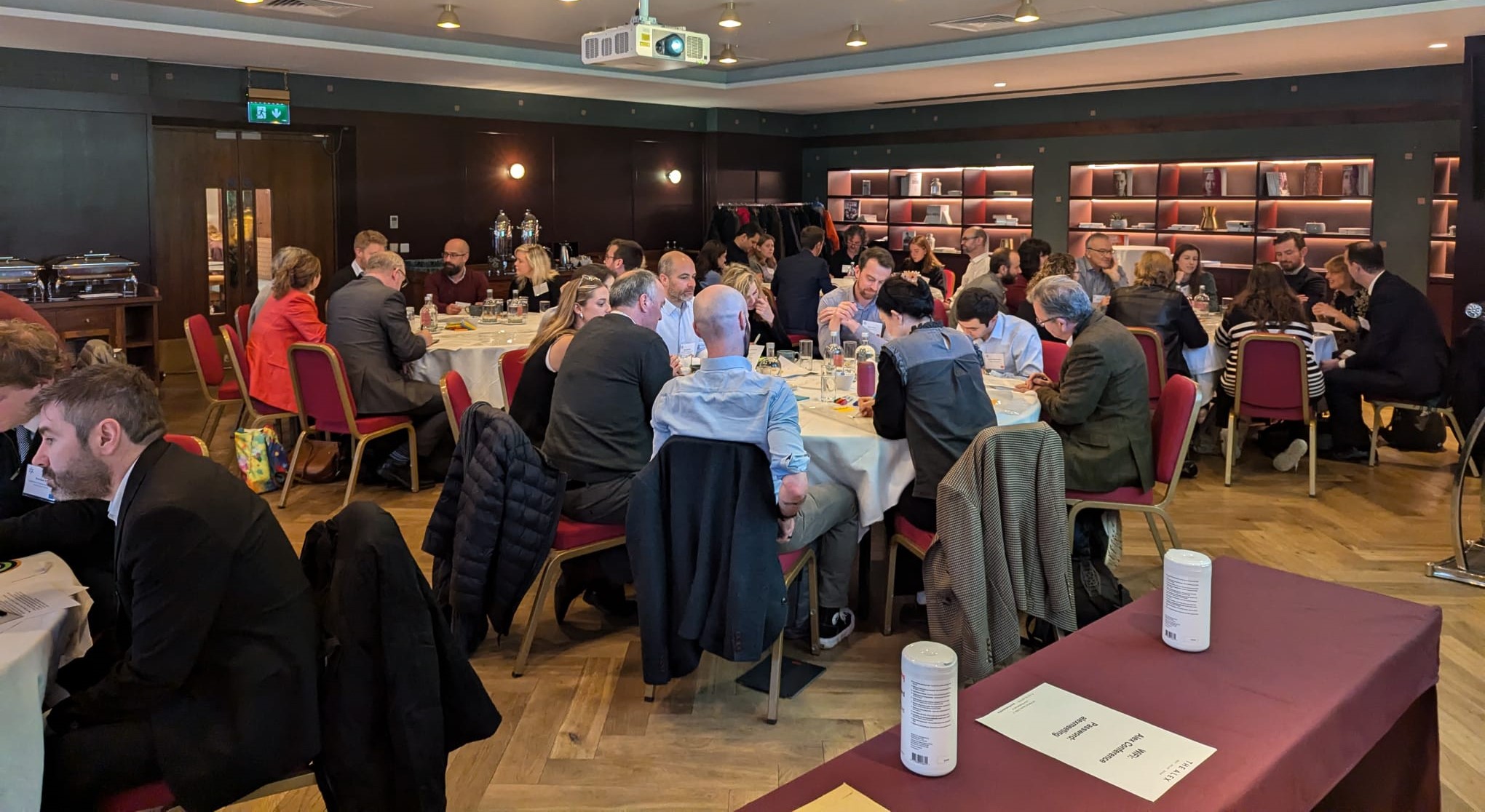You are here: Home > News & Events > NESC Energy Work Programme: Systems Workshop on 19/11/24
NESC Energy Work Programme: Systems Workshop on 19/11/24
- 26 November 2024
- Topics: Environment
- Types: Events

On Tuesday, 19th November 2024, as part of its research programme on energy, the National Economic and Social Council (NESC) gathered members of the heat and electricity sectors to collect perspectives, insights and ideas on the goal to transition towards zero carbon by 2050. The outcomes of the workshop will inform NESC’s systems analysis of the transition. The event brought together stakeholders and experts including youth delegates, utilities, the renewable energy sector, government departments and agencies, academics, Northern Ireland stakeholders, and representative organisations.
Opening the event, NESC Director Dr Larry O’Connell said “dialogue is a fundamental part of NESC’s approach. This workshop is an opportunity for NESC to support a dialogue between stakeholders and experts on a vision for Ireland’s energy transition”.
Gemma O’Reilly (NESC Policy Analyst) outlined the approach: “The energy sector has to satisfy diverse objectives including decarbonisation, affordability, eliminating energy deprivation, energy security, and competitiveness while respecting a range of environmental constraints in a context of changing technologies. Systems dynamics techniques can help us to navigate this complexity. We have been fortunate to secure the assistance of Birgit Kopainsky, Professor of Systems Dynamics at the University of Bergen, to facilitate our workshop and guide us through the techniques.”
Following the OECD’s systems methodology for ‘Transformational Change for Net Zero‘, workshop participants were guided through an exercise of envisioning a ‘post-climate change crisis’ energy system from the perspective of households, rural areas, urban areas, business parks, and the energy industry. This was followed by an exercise exploring the drivers and constraints on the transition.
Prof. Kopainsky – with support from Aidan Sliwkowski, also of the University of Bergen – helped participants identify dynamic processes facilitating or constraining the transition. Prof. Kopainsky explained that “systems dynamics approaches help reduce the ambiguities and miscommunications that occur when we tackle complex issues. This workshop will help us build an accessible coherent narrative on the energy transition, providing a solid basis for identifying concrete actions to lead us towards a desirable future”.
Outcomes of the workshop will inform the next steps in NESC’s research, which will examine the existing and available solutions to accelerate the net zero transition while achieving energy’s social, economic and environmental objectives. A report of the workshop proceedings is in preparation and will be made available alongside NESC’s energy reports in 2025.
Please see below a selection of photos taken on the day:


